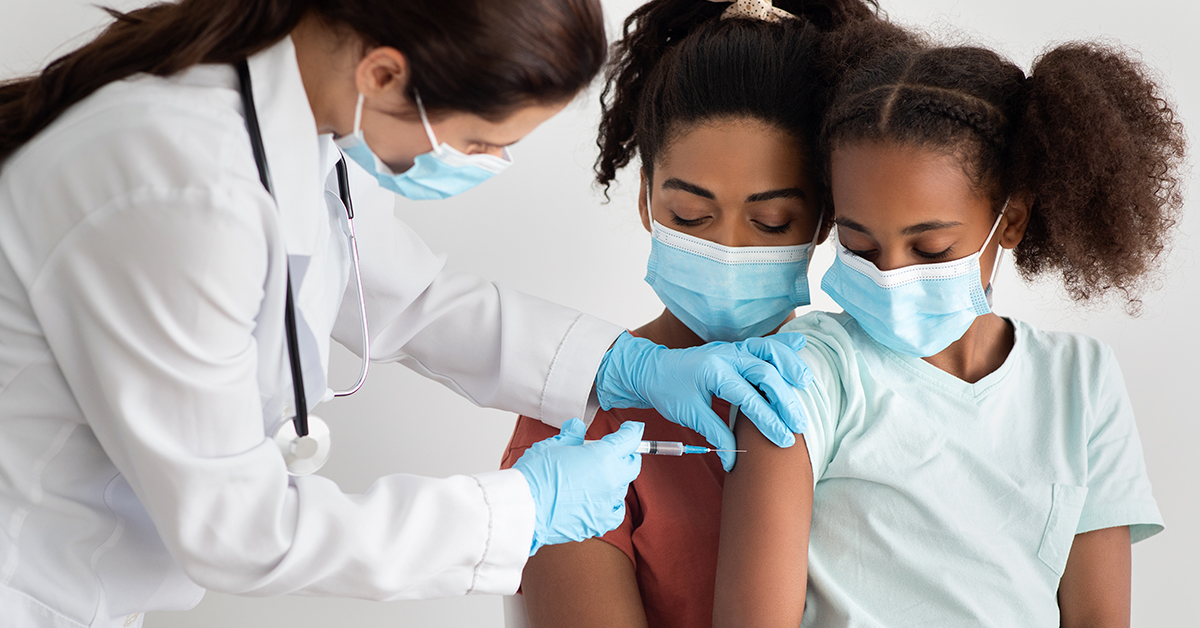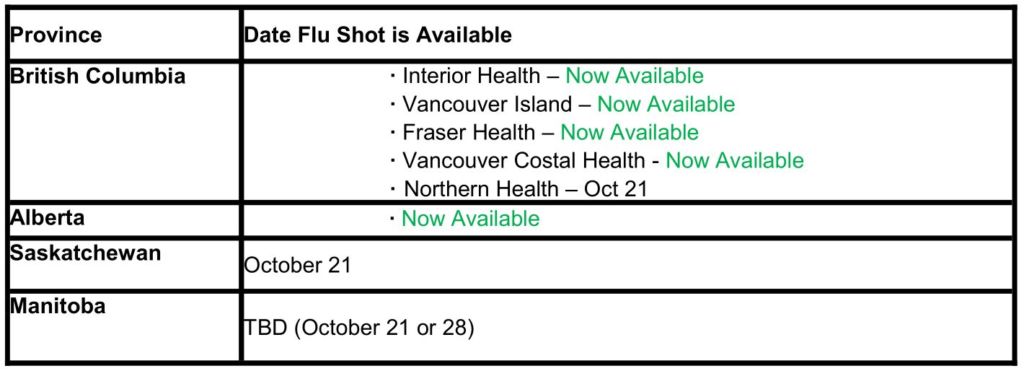Vaccines save lives. In fact, in the last 50 years, vaccines have saved more Canadian lives than any other medical intervention.
While vaccines have made many diseases rare in Canada, the organisms that cause them are still out there. If vaccination rates drop, we could see outbreaks of diseases such as measles, mumps, and pertussis (whooping cough) return. And diseases that are rarely seen in Canada are still prevalent in other countries, only a plane ride away, and it’s not possible to know where every person you come in contact with has been. When you get vaccinated you are not only protecting yourself, you are also protecting the people you are around—including babies who are too young to be vaccinated and people who cannot receive vaccines for medical reasons (such as undergoing cancer treatment or having a weak immune system).
Childhood immunization
Babies’ immune systems can fight off many germs, but there are some deadly diseases that they can’t handle. Children are exposed to thousands of germs every day through the food they eat, the air they breathe, and the items they touch. This is why childhood vaccinations are so important. Vaccines use tiny amounts of substances that help a child’s immune system learn to recognize and fight off serious diseases.
The Canadian Paediatric Society and the National Advisory Committee on Immunization currently recommend the following vaccines for children.
• 5-in-1 (DTaP-IPV-Hib) or 6-in-1 vaccine (DTaP-HB-IPV-Hib) protects against diphtheria, tetanus, pertussis, polio, and Hib disease; 6-in-1 vaccine also protects against hepatitis B.
• Rotavirus vaccine protects infants against rotavirus, the most common cause of serious diarrhea in babies and young children.
• Pneumococcal vaccine protects against infections caused by Streptococcus pneumoniae, including meningitis (a brain infection), pneumonia, and ear infections.
• Meningococcal vaccine protects against diseases caused by the meningococcus bacteria, including meningitis and septicemia, a serious blood infection.
• MMR vaccine protects against measles, mumps, and rubella.
• Varicella vaccine protects against chickenpox, a very uncomfortable and sometimes serious infection.
• Hepatitis B vaccine protects against hepatitis B, a serious infection of the liver.
• dTap vaccine protects adolescents against diphtheria, tetanus, and pertussis (whooping cough).
• HPV vaccine protects against the human papillomavirus, the cause of a variety of cancers (anus, cervix, penis, vagina, vulva, mouth, and throat) and genital warts.
Your child’s healthcare provider can advise you on which vaccines your child should have and when to have them.
Not just kid stuff
Vaccines aren’t just for children. Adults need vaccines, too. The vaccinations you may need can vary depending on what vaccines you have had in the past, whether you are pregnant or planning to become pregnant, the type of work you do, if you are planning to travel, and if you have any health conditions.
Commonly recommended vaccines for immunization of healthy adults include:
• Td (diphtheria, tetanus): for adults who haven’t previously received the vaccine, plus a booster dose every ten years
• Herpes zoster (shingles): adults 50 years and older
• Human papillomavirus (HPV): women up to 45 years old and men up to 26 years of age (or older if at risk)
• Influenza (the flu): annually
• Measles, mumps: susceptible adults born in 1970 or later
• Meningococcal conjugate: adults up to and including 24 years of age who were not immunized in adolescence
• Pertussis: one dose of pertussis-containing vaccine in adulthood; adults who will be in close contact with young infants should be immunized as early as possible; one dose of Tdap vaccine should be administered in every pregnancy, ideally between 27 and 32 weeks of gestation
• Pneumococcal polysaccharide 23-valent: adults 65 years of age and older should receive one dose
• Pneumococcal conjugate 13-valent: adults at high risk
• Polio: Previously unimmunized adults
• Rubella: susceptible adults should receive one dose; if vaccine is indicated, pregnant women should be immunized after delivery (or one month before pregnancy)
• Varicella (chickenpox): susceptible adults up to and including 49 years of age should receive two doses
In addition to routinely recommended immunization, certain vaccines are recommended for adults in specific
risk situations. As an added benefit, some vaccines can lower your chances of getting other diseases in addition to protecting you from the diseases they are designed to prevent, for example:
• Hepatitis B vaccine lowers the risk of liver cancer.
• HPV vaccine lowers the risk of cervical and anal cancers.
• Flu vaccine lowers the risk of flu-related heart attacks and other flu-related complications from existing health conditions
Vaccine misinformation
Some people are afraid to get vaccinated, because they believe false stories about vaccines that they have heard from friends or have read in the media. Don’t be fooled by this misinformation and let it lead you to putting your health and that of your family at risk. Here are the facts that help clear up some of this misinformation:
• The MMR (measles, mumps, rubella) vaccine does not cause autism. This story began 20 years ago when a British doctor published an article that supposedly made the connection. It was later discovered that his research was seriously flawed and that he had a financial interest in a company that was going to come out with a competing vaccine. The doctor lost his license to practice medicine, and many studies have disproved any link between autism and the vaccine.
• Vaccines are safe. In Canada, there are very strict guidelines governing the way vaccines are made. As with other medicines, vaccines are tested thoroughly before Health Canada approves them for use. Even after vaccines are in use, Health Canada continues to monitor them to see if any side effects appear.
• Vaccines do work. The fact that some people get the disease after being vaccinated doesn’t mean that vaccines are ineffective. Like just about everything else in life, vaccines are not absolutely 100% effective, so there is a chance that some people will not develop immunity to the disease after receiving the vaccine. However, even if a person does contract the disease, it is likely to be less severe than if the person had not been vaccinated.
Talk to your pharmacist about what vaccines are right for you and your family, and take the necessary steps to safeguard your health against preventable diseases. You can also learn more about what vaccines are offered at London Drugs here.







